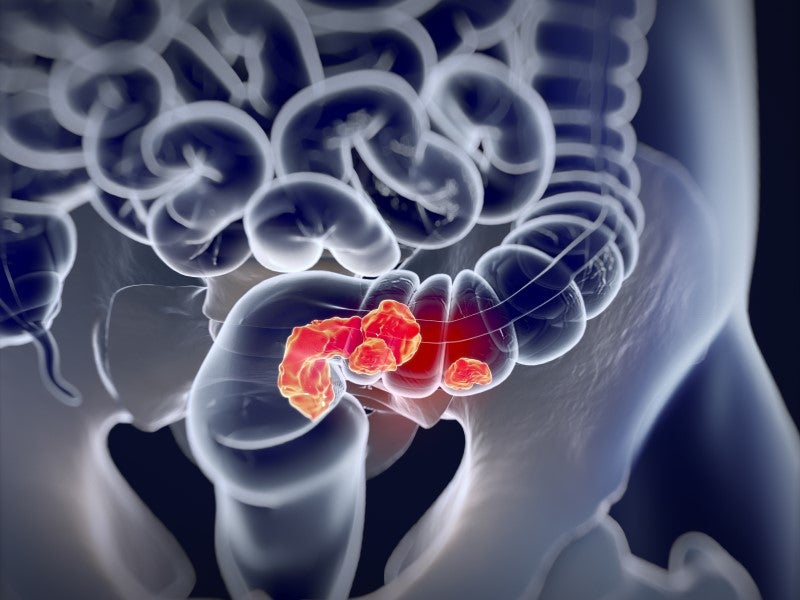March is National Colorectal Cancer (CRC) Awareness Month, a time aimed at raising awareness for what is the world’s second leading cause of cancer death worldwide. With pivotal clinical trials for new cancer blood tests – so-called ‘liquid biopsies’ – occurring in 2022, transformative change for the diagnostics surrounding CRC may be around the corner. Key developments in the CRC space have the potential to shape the rapidly evolving market around liquid biopsies.
The CRC testing market itself has seen significant developments in recent years, driven in large part by rapid adoption of new stool-based DNA tests, such as the Cologuard test from Exact Sciences. Launched in 2015, faecal DNA tests marked a paradigm shift in CRC screening and moved CRC detection towards a focus on the genetic determinants of cancer rather than symptomatic aspects of disease, such as detection of haemoglobin in stool samples. Cologuard sales in the US have grown rapidly since the launch of the product, growing to more than $1bn in sales distributed to more than 200,000 healthcare providers. However, with the promise of multi-cancer early detection tests on the horizon, which each target tens to hundreds of genetic markers in a single test, the CRC market is ripe for further disruption.
Liquid biopsies have promised to revolutionise cancer diagnostics for years, though the clinical arrival and impact of such tests has been slow and incremental. Perhaps at the height of the buzz in this space, the Galleri test from Grail is aimed at detecting up to 50 different types of cancer in a single test. Visibility of this test has only increased following last year’s acquisition of Grail from sequencing giant Illumina, which was originally spun-off from Illumina in 2016. The Galleri test gained additional exposure last year with multiple partnership announcements, including those with Quest Diagnostics, Amgen, AstraZenica and Bristol-Myers Squibb, to advance further studies. Available as a lab-developed test in the US now, Galleri will likely see submission for Food and Drug Administration (FDA) approval by 2023 following completion of the PATHFINDER clinical trial. Grail reported preliminary results from PATHFINDER where it was successful in identifying 14 different cancers, with 40% of diagnosed new cancers prior to distant metastasis.
Since the Illumina-Grail deal was announced, both the US Federal Trade Commission (FTC) and European Commission were quick to highlight concerns around industry competition, with Illumina already having a near stranglehold on the market for next-generation-sequencing – the key technology behind liquid biopsies. The European Commission went as far as instructing Illumina to hold Grail as a separate entity entirely while it investigates the acquisition. With a decision earlier slated for March 4 2022, the current investigation has stalled pending delivery of information and documents from Illumina and Grail to the EU. Illumina has tried to leverage Brexit as an opportunity to sidestep the investigation, claiming that GRAIL has no business in the EU while also partnering with the NHS to recruit 100,000 volunteers for a future study. The final ruling on the case is certain to have a significant impact on how the liquid biopsies space will continue to evolve moving forward.
In the meantime, several other companies are aiming at bringing further innovation to the CRC space. Guardant Health has developed several precision oncology tests, including the LUNAR-2 liquid biopsy for early CRC detection in average-risk individuals. With CRC slated as its first indication, Guardant Health will be looking to wrap up the ECLIPSE trial, involving 12,750 patients, by year’s end; the trial is aimed at support of a Pre-Market Authorisation request to the FDA. Guardant Health expects to launch its new test this year, being made commercially available as a lab-developed test. Considerable investment capital has gone towards liquid biopsies for CRC already in 2022, including nearly $600m from Roche in two rounds of funding to privately held biotech company Freenome. With backing from Roche, Freenome is conducting the PREEMPT CRC study, the world’s largest prospective study for non-invasive CRC screening with more than 30,000 patients. A prior study from Freenome, AI-EMERGE, detected early-stage CRC with 94% sensitivity and specificity each.
The new generation of liquid biopsies can be applied to multiple scenarios spanning cancer care and treatment, including early detection, monitoring disease recurrence, serving as a companion diagnostic for precision oncology drugs, and monitoring disease progression or recurrence following treatment. Guardant Health believes this approach can open a $30bn market in the US. For CRC screening, Exact Sciences found success in moving the market ahead by convincing healthcare providers that the utility of Cologuard was worth the $500 price tag. Grail is aiming to make their liquid biopsy available for approximately $995, while the Guardant360 test comes in near $6,800. With final results from key clinical trials still some months away, healthcare providers and payers will want to see the utility of these new tests backed up by further clinical evidence before finalising reimbursement limits. With answers to these questions coming soon, the CRC screening space will be a key battleground in shaping the future of liquid biopsies moving forward.

US Tariffs are shifting - will you react or anticipate?
Don’t let policy changes catch you off guard. Stay proactive with real-time data and expert analysis.
By GlobalData





